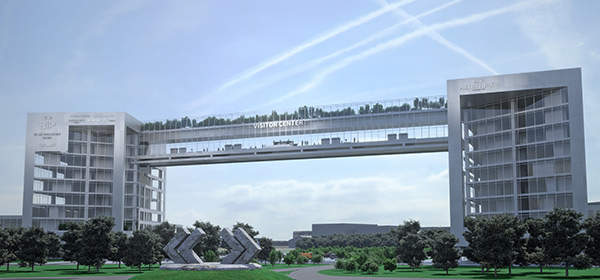Environment
Other
Yards
Turku Region drives the future of maritime

Networking edge and innovation spirit have sustained the local companies for ages – and they’re just getting started
One is not hard pressed to find the number one maritime hub in Finland. Turku – located in southwestern Finland – is the most important production cluster of Finnish maritime industry: nearly onethird of the country’s maritime industry companies are located in the Turku economic region.
There’s a strong co-operation network – known as MaritimeTurku – that has been built around the maritime knowhow and innovation activities, providing also a wide range of services to the R&D needs of the industry.
The network approach is the key here, since the global market challenges of the future require continuous renewal and new exploration in research and business. With the shipbuilding industry as its calling card, the Turku Region has a long history of know-how in also offshore and Arctic technologies.
Shipyard reigns supreme
In fact, the shipbuilding tradition in Turku dates back to the 18th century. Today, the industry employs 8,000 people in about 400 companies. The engine of the MaritimeTurku network is the shipyard, Meyer Turku, whose orderbook extends to 2024. Other important companies include e.g. Kongsberg Maritime Finland, Mobimar, Admares and Wärtsilä.
Academic edge is provided by University of Turku, Turku University of Applied Sciences, and Åbo Akademi University. Recently, Turku has also evolved into a centre for the global development of intelligent, autonomous ships.
In addition, the future will be very much realised in the Blue Industry Park which aims to become the leading production and innovation cluster of maritime expertise in Europe. Located just off the Turku shipyard, the Blue Industry Park wants to serve companies of all sizes and to strengthen the industrial clusters in the Turku Region.
As of yet, however, the Park exists mostly on the drawing board. While zoning is presently being finetuned, the outlook is to start the construction of the Park in spring 2020. Currently, there is already excavation in the area.
Wanted: Blue synergy
According to Janne Alho, Project Manager for Blue Industry Park, the competitive advantage of the Park is the synergy created by the co-operation of enterprises and other actors in the area.
“Blue Industry Park will combine a critical mass of resources and expertise along with a competitive setting with production, product development, and research,” he says.
While the actual launch of the Park is still in the future, Alho and his team has been making headway on the digital side. A new Blue Industry virtual platform is being created, with the aim of uniting all the 1,200 companies of the Finnish maritime cluster.
“We are expecting to launch the first version of the platform in August 2019,” says Alho. He explains that the idea here is to put together the “platform of all maritime platforms,” allowing the industry players – big and small – full range of communication.
“There is clearly a need for improved collaboration and communication, since the Turku shipyard is expanding its scope of operations so tremendously. The material flows of the shipyard are set to double in the next three years,” he points out. The Blue Industry Park could be the perfect “sidekick” for the shipyard, with as many as 100 companies (and 10,000 employees) in attendance – at least according to the plans.
Big fish, little fish
New startups are also rallying under the maritime flag. To accommodate the birth of new innovations, the Maritime Accelerator programme was launched in 2018 (by Turku Science Park together with Avanto Ventures). Both Royal Caribbean and Meyer Turku are participating in the programme.
Last year, the programme compiled a list of 500 internationally attractive growth companies, and through initial screening, interviews and workshops, Royal Caribbean and Meyer each found two startups with which they started co-operation.
Juhani Pitkänen, Technology Director of Royal Caribbean, stresses the importance of the accelerator programme as a tool for development and renewal in the industry. According to Pitkänen, up to now, the cruise business has largely leaned on traditions, and the industry practices have been conservative.
“With rapid growth and fierce competition, the old ways of working are no longer enough to maintain our competitiveness,” he says. Through Maritime Accelerator, Royal Caribbean wants to find a new innovative approach to develop its business, challenge its own thinking and boost its competitiveness.
Maritimeturku - Fastfacts
- Turnover of the maritime cluster in Southwest Finland 3.3 billion euros
- Employs around 8,000 people in Southwest Finland
- 400 network companies, 20 design agencies, 15 shipping companies and 5 shipyards in Southwest Finland
- Around 27 % of Finland’s maritime industry jobs
- Four universities and universities of applied sciences
- Several maritime training and/or research institutes
By: Sami Anteroinen



